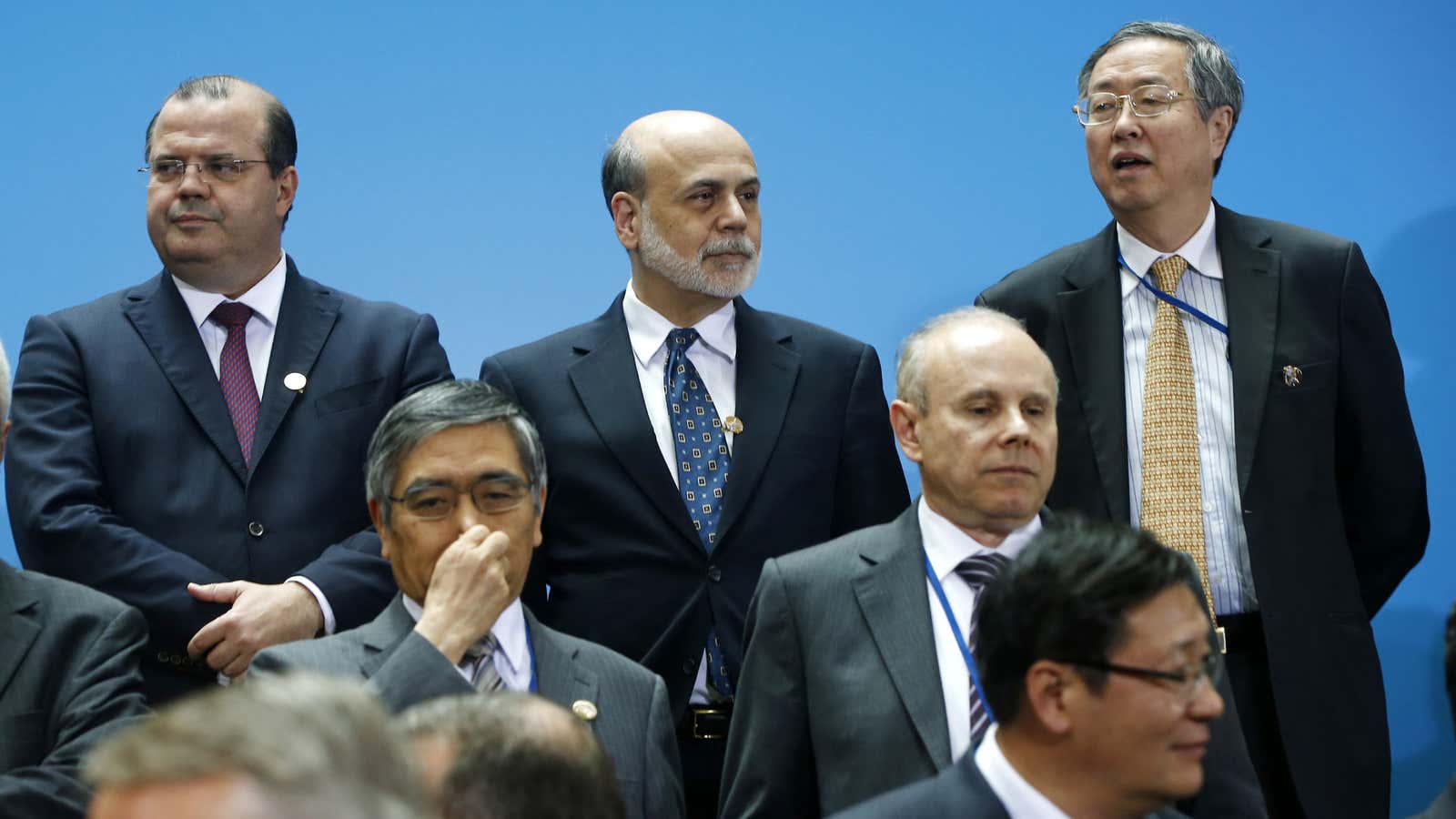2013 was another big year for central banking. The Federal Reserve’s unconventional policies helped drive the US economic recovery. The Bank of England and European Central Bank both surprised markets when they embraced forward guidance. And who could forget the Bank of Japan’s gutsy move to wrest the country out of deflation?
But that was nothing compared to the dazzling display of bravura from the People’s Bank of China—at least, according to Central Banking Journal (h/t MoneyBeat), which boasts a raft of heavyweight economists and ex central bank chiefs on its board. Against all odds, the PBoC seized the London-based magazine’s award for central bank of 2013.
How did the PBoC earn this garland? The award was based on three criteria: “authority and integrity,” “fulfillment of mandate,” and “pioneer.” Praising the PBoC’s “strong leadership and technical competence,” Central Banking Journal explains that the bank worked to rein in the shadow banking system and push for capital account liberalization, adding bonus points for advancing deposit insurance plans (which haven’t yet been implemented).
To be fair, the PBoC isn’t even an independent bank; it takes orders from the State Council. But it’s hard to see what “authority” the PBoC demonstrated in 2013.
When it tried to tether shadow lending by cracking down on faked trade invoicing in May 2013, the PBoC inadvertently paralyzed markets with a liquidity crunch. The PBoC blundered the crisis by holding off on injecting liquidity until banks began defaulting (reportedly), then furiously pumping money into the system. The fact that it reprised this schizophrenic approach in December betrays the PBoC’s incompetence, inexperience, indecision, or ignorance of the scale of China’s debt problems. Or maybe all of the above (its lack of transparency makes it hard to tell).
On top of all that, the PBoC fumbled one of its key mandates—management of the yuan’s exchange rate—in a way that invited speculative capital inflows aiming to profit from the currency’s strengthening, as we discussed yesterday, exacerbating the great Chinese shadow banking bonanza of 2013.
So why bestow this praise on China’s central bank? The award is of a piece with an emerging meme in media coverage lauding the PBoC’s wizardry in forcing banks to recognize risk. But the oft-cited notion that the cash crunches in June and December were “experiments” that the PBoC “engineered” (paywall), putatively to “teach” reckless banks a lesson, has no foundation. To the contrary, it seems pretty clear that the PBoC grossly underestimated the problem’s severity. Meanwhile, shadow lending surged throughout 2013, thanks in part to the PBoC’s mismanagement of the yuan’s exchange rate.
Other accounts frame the PBoC as masterfully goading the State Council into reform from behind the scenes. The PBoC is, it’s true, one of the only prominent forces pushing for crucial market reforms. But this is nothing new. Throughout his decade-plus career as central bank governor, Zhou Xiaochuan has called for these changes. The few token reforms in 2013 to show for that effort weren’t much more remarkable than those of past years. That makes Zhou’s central bank a “pioneer” if you’re counting points for effort, perhaps. But if you’re scoring for financial stability, the PBoC looked like a pretty big loser last year.
